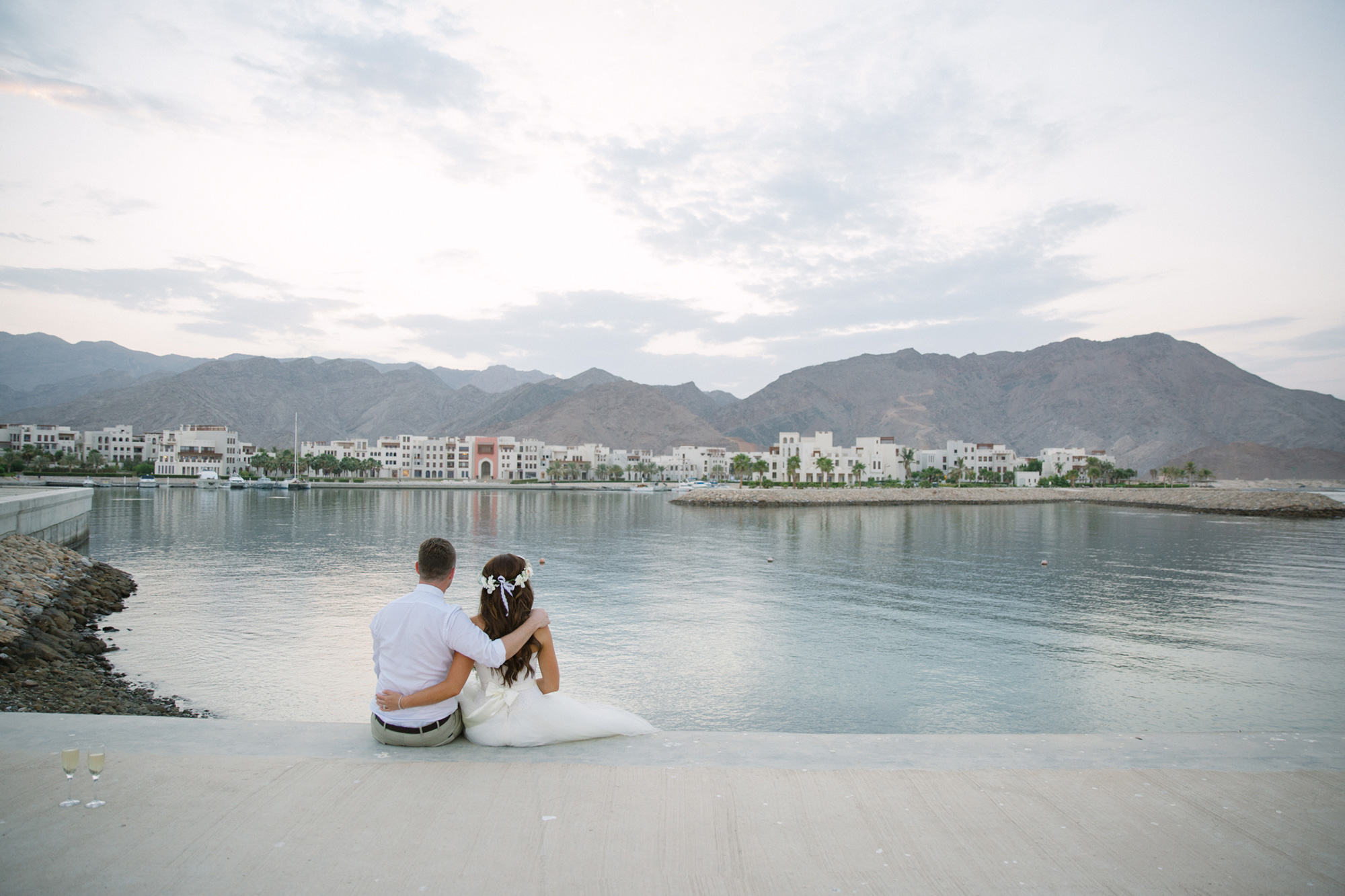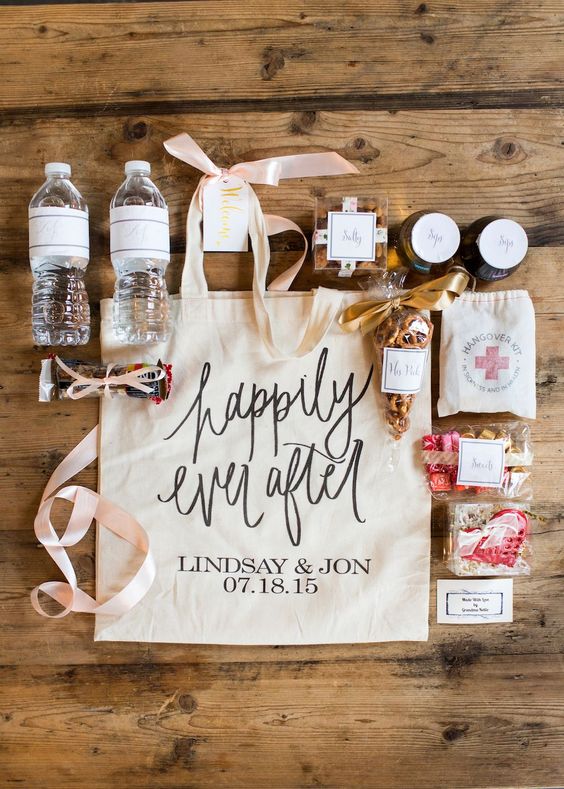Planning a destination wedding can be a little trickier than planning your nuptials on home soil. HOWEVER, with a little knowledge, it doesn’t need to be that much extra work. Here’s some tips on planning a destination wedding, no matter where in the world you currently live and no matter where in the world you’d like to marry:
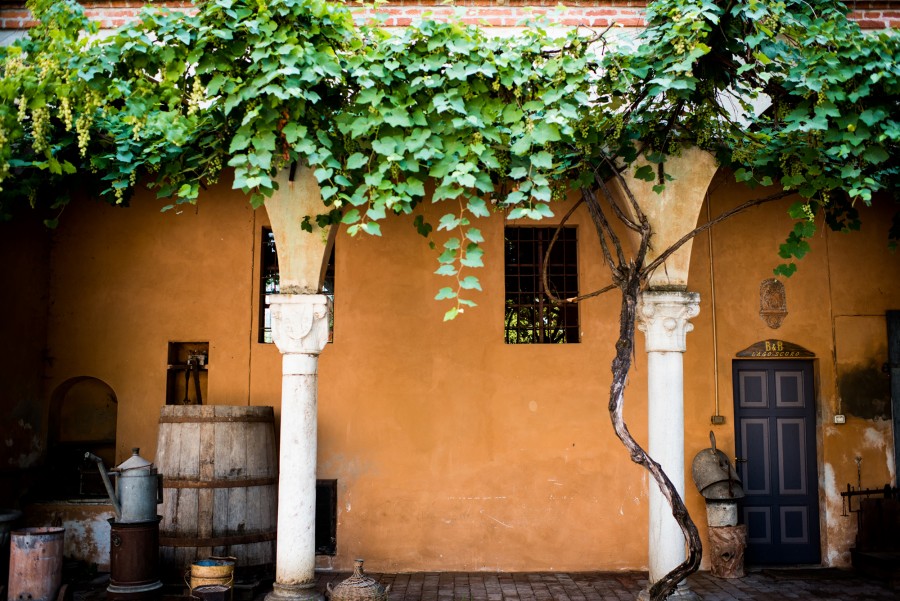
How do you choose where to hold your destination wedding?
There’s no one-size-fits-all formula for picking the perfect destination, as different aspects will come into play. For example, if your guests are time poor, you really need to look at going somewhere that’s just one flight away. Whereas if they can look at a week or 10 days away, you can go somewhere a bit further afield.
Personal aspects of your relationship might come into play too – for example the country where you met, somewhere that’s on your bucket list or a place you’ve holidayed at together. It’s also worth hitting sites such as TripAdvisor to get a feel for a location’s personality, as even neighbouring islands in the same chain can be very different.
For the most part, though, it’s more important to look at venues as opposed to destinations because they’re the key to what you can achieve. Think about what kind of style you want, what experience you want your guests to have and then make a decision.

Can I have a civil service overseas or does it have to be religious?
This one depends on the country in question. For example, in Bali you are required to have a religious ceremony for the wedding to be legal, but local priests will tailor ceremonies to suit different couples. If you feel strongly one way or the other, it’s best to consider this when selecting a destination in which to marry. There’s also official documents and legal documents to file wherever you decide to wed.
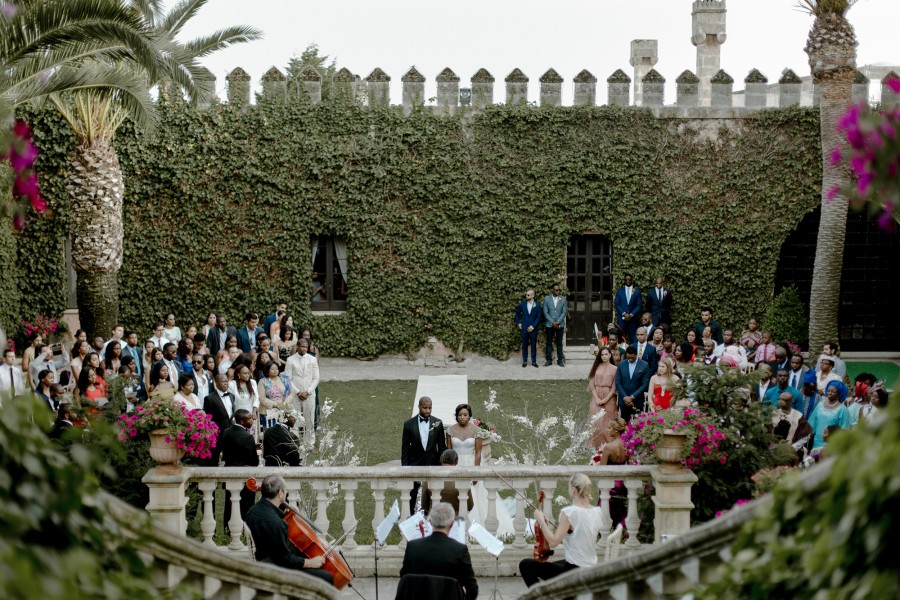
What is the biggest misconception about destination weddings?
People sometimes don’t understand how accessible and affordable destination weddings can be. For starters, they can offer some pretty substantial cost savings, but it’s also about value for money. You can take a traditional high-end wedding and stage it overseas for a fraction of the cost. Also, the experience of a destination wedding is something you just can’t put a price on.
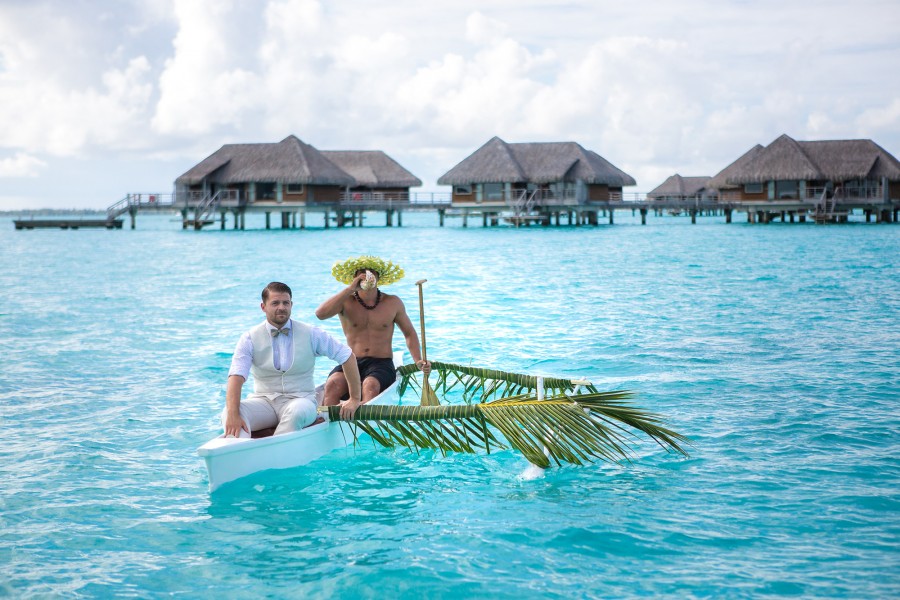
So what sort of money would we be looking at?
There is no way to put a precise figure on this, as every single wedding is different. However, as a guide – cost is depending on the resort you choose and guest numbers as well as who’s paying for what.
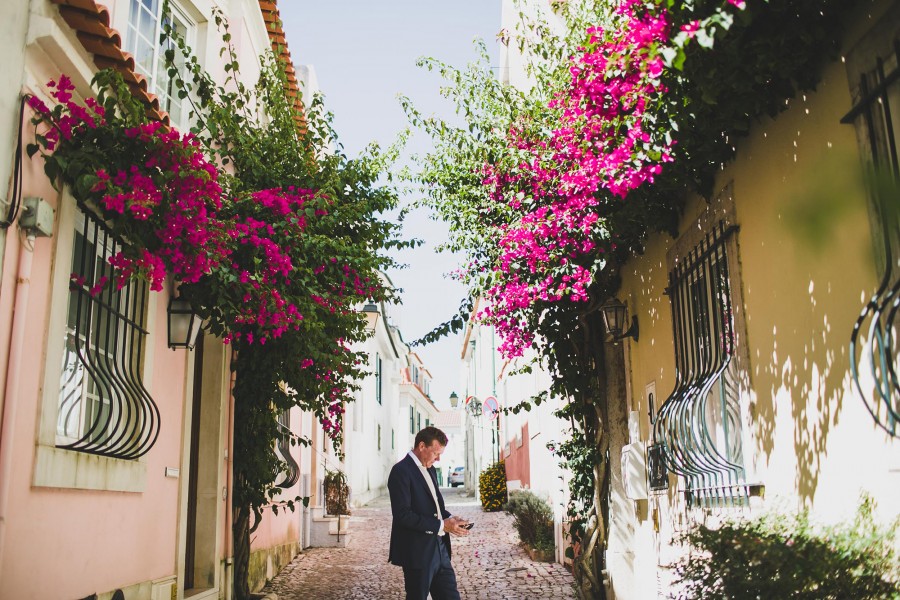
Are we expected to pay for our guests?
There is an expectation you will pay for the normal costs, such as the reception, but guests who choose to come will generally expect to fork out for their own travel, accommodation, and incidentals. It’s a much more accessible arrangement these days with the proliferation of low-cost airlines – and you can also organise group deals – but one way you could offset the cost is to let them know their attendance is all the gift you could ever want. What some couples also do is arrange a couple of nights’ accommodation for their VIPs, such as their wedding party or immediate family, to say thank you for their support.
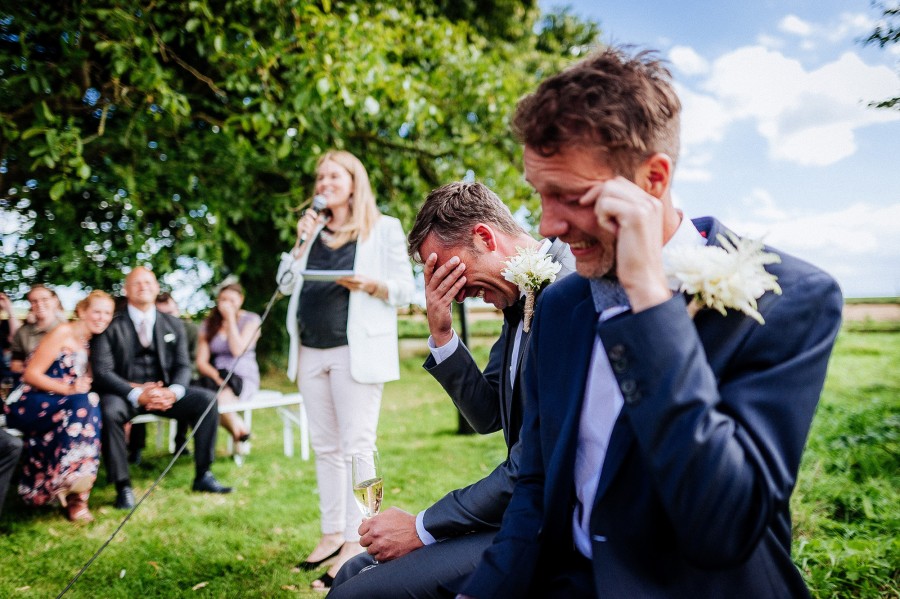
How much notice do we have to give them?
The short answer is, as much as possible, preferably via a save the date card. But don’t just send the date and destination, also try to have all the arrangements locked in so you can send them information on such things as packages for flights and accommodation (see previous question). It’s also worth considering a wedding website so you can update details as they come to hand or even give pointers to tours etc that would be of interest to guests who plan to turn the trip into a holiday of their own.
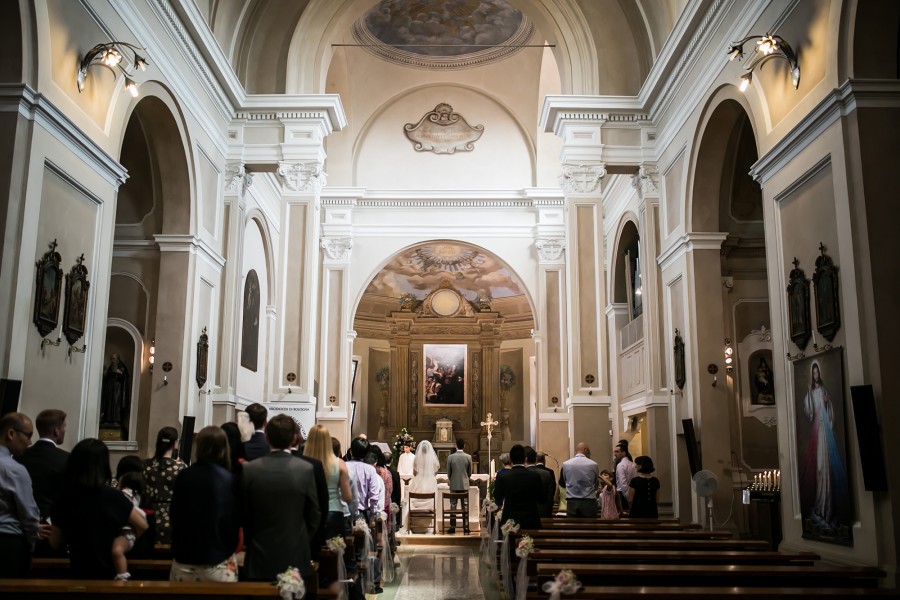
How much time should we allow to actually plan it?
Anytime from six to 18 months out from your ideal wedding date is a good idea.
In budget terms, how does the cost of food and wine measure up?
With the food, you can generally tap into amazing menus for much less than you would normally expect to pay in United Kingdom. And that’s part of the attraction. But, on the flipside, you’ll probably face higher beverage costs as most of the wines and/or champagne are generally imported. So usually, it’s the savings in other areas of the wedding that will appeal, as opposed to eating and drinking.
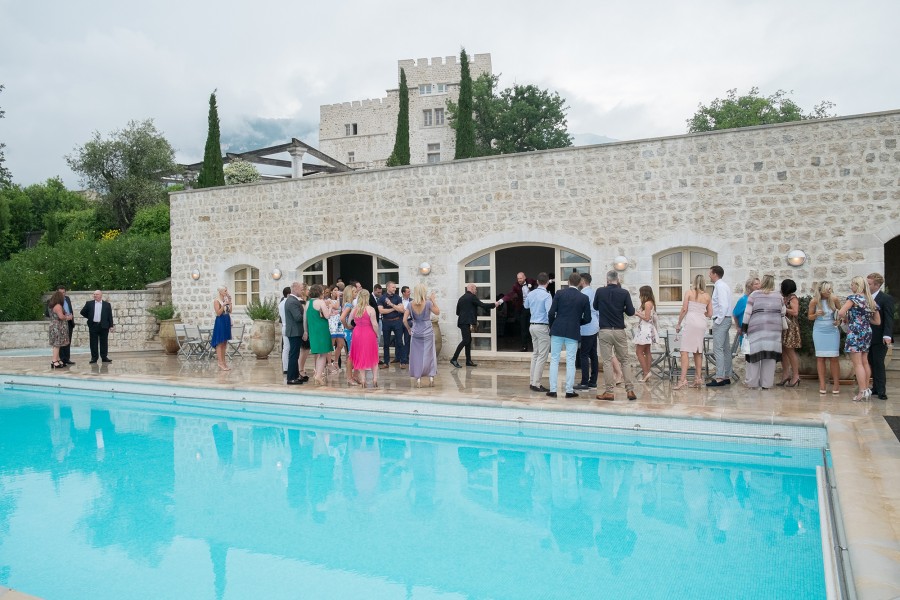
Do fluctuating currencies impact on cost at all?
Absolutely. In fact we recommend people keep an eye on the dollar so they can pay off more of the wedding costs while it’s strong against the local currency.
In terms of when to wed, how much attention should we play to the time of year?
A lot – because it’s a big factor to consider. For starters, if you avoid peak season you’ll immediately secure some substantial savings. You may also want to avoid major local cultural celebrations and festivals. Weather is another factor to consider to make sure, for example, that you don’t marry when humidity is at its peak or the mercury is at its lowest. Again, it all depends on researching destinations that catch your eye.

Getting down to the nitty gritty, how do I get my dress over there?
The easiest way is just to take it with you. But, make sure you fly with a good airline that has business class cabins as they will then have cupboards on board where they can store it.
Should I get wedding insurance?
Yes, yes and yes again. Anytime you go overseas there’s the potential for things to go wrong – no matter how perfectly and carefully you have made plans. It could be anything from the local government to the weather – things that simply can’t be predicted and therefore avoided. So yes to wedding insurance – it may seem expensive but it’s worth it for the peace of mind.
